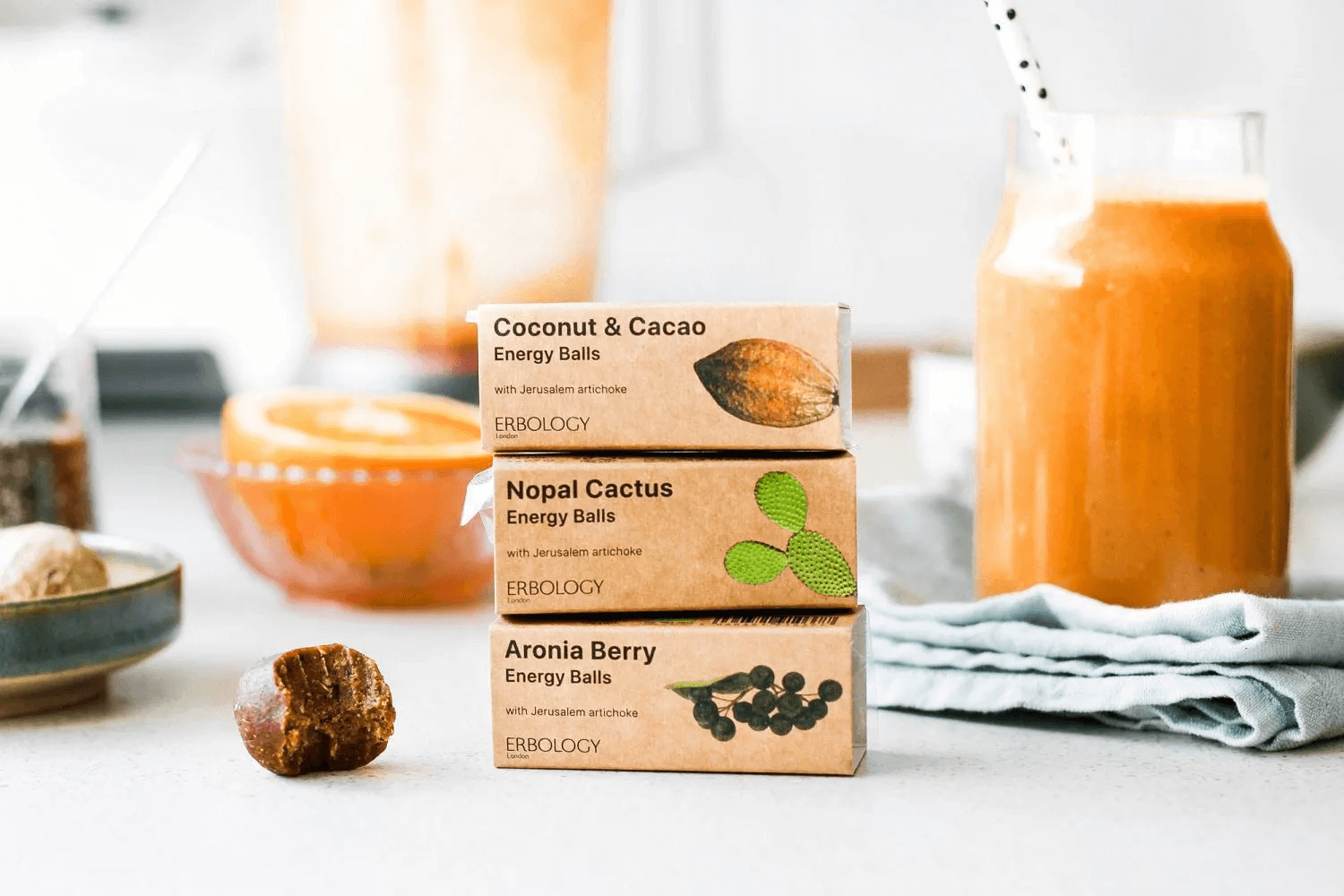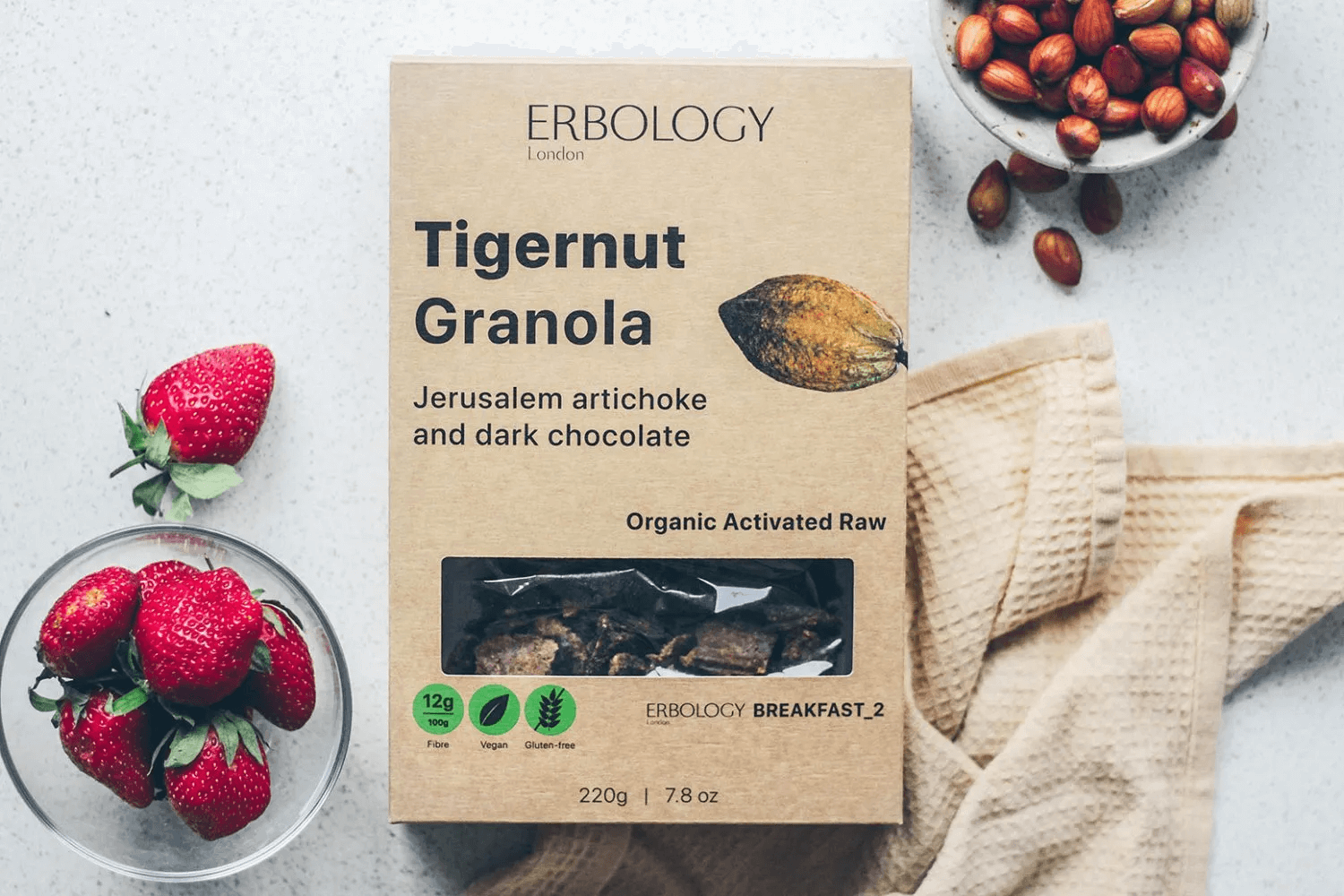13 Apr 2020
Eat these 7 prebiotic and probiotic foods for your gut health
The simplest way to make sure you're eating foods that are good for the gut is to follow our four easy steps.
We'll go into more detail about each of these important points below, but fortunately a gut-friendly diet has lots in common with the healthy diet you may already be eating.
![]()
Eating lots of healthy vegetables and whole grains - and avoiding late night pizza cravings - may not be news to you. However, steps three and four might be slightly less familiar.
Let's get into a little more detail about the two Ps: Prebiotics and Probiotics.
Prebiotics
Prebiotic foods contain fibre which cannot be digested by humans This fibre stays in your large intestine, where most of the gut microbiome is located.
Fortunately, your beneficial gut bacteria are able to ferment prebiotic fibre, breaking it down to release the nutrients within which then provide them with a nourishing meal.
Not only do your gut bacteria get stronger, but more varieties of gut flora flourish, each with its own role to play. A more diverse collection of bacteria in your gut is linked with improved general wellbeing.
Therefore, by eating prebiotics, you're not only feeding yourself but also all the tiny creatures in your gut! → View Related Products
Probiotic foods
Probiotics are foods that import live bacteria right into your gut. The idea is that these new bacteria will make their way down to your gut to bolster the numbers of 'good' bacteria, or even provide new types of bacteria.
You might like to think of your gut as a savannah; just as the different animals of the grasslands all have different roles to play, so too do the different types of bacteria in your gut. All together, they help to create a flourishing, interconnected ecosystem.
Some probiotic foods, like those tiny milky drinks that have been around for ages, add 'predictable' bacteria to the gut flora. In other words, you're quite likely to already have these types of bacteria 'in stock'.
However, other probiotics contain more unusual bacteria that enhance the microbiome and bring new possibilities to it.
Interestingly, research suggests that prebiotics may make more noticeable difference in gut health in the short term. However, the effect of probiotics is valuable in the longer run.(1) In other words, do make an effort to make both prebiotics and probiotics a regular part of your day-to-day eating. That's the easy part, as they are so tasty.
Related reading
Gut health and mental health: what's the link?
Seven immunity boosting foods for your diet
Prebiotics to try...
1. Jerusalem artichokes
Jerusalem artichokes are a wonderful source of inulin, a type of prebiotic fibre. They are actually tubers, rather similar to parsnips and potatoes. Rather sweetly, they are also sometimes known as 'earth apples'.
In fact, Jerusalem artichokes go by many names, and you may hear them referred to as sunchokes or sunroots, too. This is because they are the edible root of the sunflower plant.
But behind their sunny appearance, these tubers pack a prebiotic punch. Just 20g of Jerusalem artichoke will give you enough prebiotics for the day.(2)
Jerusalem artichokes have a somewhat sweet flavour which goes very nicely as a vegetable side dish, or in sweet or savoury dishes. We love adding a spoonful of our Organic Jerusalem Artichoke Powder to baked goods, too, as the flavour is so mild and blends so well. Try it in cakes, cookies, breads, or these delicious breakfast pancakes.→ View Related Products
2. Leeks, onions, and garlic
While not quite as impressive as the Jerusalem artichoke in terms of prebiotic power, leeks, onions and garlic are all good sources of inulin fibre.
It's also likely that you'll have at least one of these - if not more - residing in your fridge already. As well as making a brilliant base for lots of dishes, from sauces to pies to stews, they'll also provide you with a boost of prebiotic fibre.
Plus, the leeks and onions count as one of your five a day!
3. Tigernuts
Tigernuts have a rather deceptive name; they are actually tubers, not nuts! However, their taste and texture is so similar to the nut family that they are sometimes called 'earth almonds'. It seems that lots of prebiotics have rather charming nicknames.
Tigernuts are extremely versatile. While they are perhaps best known for their milk, which is a key ingredient in the Spanish and Mexican drink horchata, if you want the benefits of their prebiotic fibre it's best to eat them whole. You can grind them into flour to bake with, enjoy them roasted, blend them with dates, or even eat them for breakfast, If you'd like to try a tigernut breakfast bowl, sprinkle a handful of our delicious tigernut granola over your breakfast bowl. Any way you eat them, you'll feel the benefits of their store of resistant starch fibres, which function as effective prebiotics.(3) → View Related Products
Related reading
undefined

Organic Coconut & Cacao Energy Bites

Raw Dark Chocolate - Prebiotic Tigernut Granola

Organic Coconut & Cacao Energy Bites
